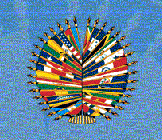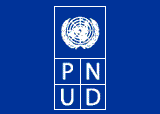APUBLIC AI Index: AMR 53/014/2003
21 October 2003
UA 297/03 Fear for safety/death threats/unlawful detention/torture and ill-treatment
VENEZUELA Deivy
Jaspe Gutiérrez (m), aged 16
Ives Pico Gutiérrez (m), his cousin
Angela Gutiérrez (f), mother of Ives Pico
Gutiérrez and Carlos Miguel
Pico Gutiérrez
Other members of their family
Killed: Carlos Miguel Pico Gutiérrez (m)
Amnesty International is concerned for the safety
of Deivy Jaspe Gutiérrez, Ives Pico Gutiérrez,
Angela Gutiérrez and their family, in Sucre state,
northeastern Venezuela. They have reportedly been
intimidated and threatened by local police in an
apparent effort to silence their calls for an
investigation into the murder of family member
Carlos Miguel Pico Gutiérrez in April 2003.
On 12 October, eight members of the Sucre Police
reportedly forced their way into the home of Ives
Pico Gutiérrez, the brother of Carlos Miguel Pico
Gutiérrez. The police officers arrested him at
gunpoint and detained him without charge at a
nearby police station in the town of Petare. While
he was in detention, one of the police officers
reportedly told him, "Tu eres el que esta acusando
a mi compañero" ("you are the one who is accusing
my friend"), a reference to Sergio Rodríguez, one
of the policemen who, witnesses claim, killed
Carlos Miguel Pico Gutiérrez. The same policeman
then allegedly hit Ives Pico Gutiérrez several
times in the chest.
Ives Pico Gutiérrez was then taken in a jeep to
the local police headquarters. Sergio Rodríguez
reportedly got into the jeep with Ives Pico
Gutiérrez and threatened him: "Tú mamá me denunció
ante la fiscalía y no me importa… Nosotros si
matamos a tú hermano, si tu mamá sigue con la
denuncia el próximo serás tú" ("Your mother
denounced me to the Prosecutor's office but I
don't care… We killed your brother, if your mother
continues to denounce me, you will be next"). Ives
Pico Gutiérrez's mother is Angela Gutiérrez, who
has lodged a complaint against Sergio Rodríguez
and another officer in connection with the murder
of her son Carlos Miguel Pico Gutiérrez.
At the local police headquarters, police officers
reportedly took Ives Pico Gutiérrez into a police
dormitory, where he was handcuffed and hit with a
broomstick on the soles of his feet and on his
chest. According to reports, his face was covered
with a bag so he could not breathe, and officers
again threatened him, saying, "Esto te pasa porque
tú mama esta denunciando a un compañero de
nosotros. Nosotros no creemos ni en fiscales ni en
nadie, ellos no te van a salvar de esta paliza.
Vamos a matar a tu mamá, la primerita que se va a
morir es ella, y tú le vas a llevar el mensaje a
tu mamá. Nosotros matamos a tú hermano y no hay
pruebas de nada, dile a tú mamá que quite la
denuncia o el próximo vas a ser tú" ("This is
happening because your mother has denounced one of
our companions. We don't believe in Prosecutors or
anyone else; they won't save you from this beating.
We will kill your mother, she will be the first to
die, and you will bring this message to your
mother. We killed your brother and there is no
evidence; tell your mother to withdraw the
complaint or you will be the next one"). Shortly
afterwards, Ives Pico Gutiérrez was released
without charge.
At around 2am on 5 October, five Sucre police
officers stopped a bus in which Deivy Jaspe
Gutiérrez, the cousin of Carlos Miguel Pico
Gutiérrez, was travelling with a relative and a
friend. Deivy Jaspe Gutiérrez was arrested and
taken to a police station in the town of Carmen
Petare, where he was reportedly beaten by police
officers. He was freed approximately one hour
later.
BACKGROUND INFORMATION
Carlos Miguel Pico Gutiérrez was murdered on
12 April 2003. The circumstances of his murder are
not known. His body was taken to hospital, where
firearm wounds on the thorax, arm and abdomen, and
bruises all over the body, were discovered.
Witnesses testified that Carlos Miguel had been
injured by a four men belonging to a Sucre police
unit, including Sergio Rodríguez.
Many Venezuelan States have a history of
extrajudicial executions carried out by the police
or groups linked to them, and a failure to protect
witnesses and family members of the victims (see,
for example, UA 130/03, AMR 53/007/2003, 9 May
2003 and follow-ups). Despite these patterns of
abuses, official investigations have repeatedly
failed to bring those responsible to justice,
creating a climate of impunity in which
perpetrators are free to intimidate witnesses.
http://web.amnesty.org/library/Index/ENGAMR530142003?open&of=ENG-VEN


